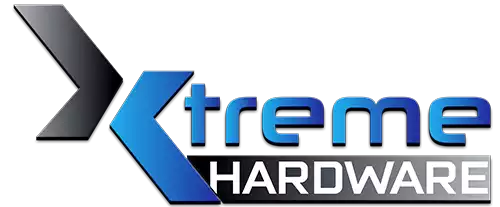Palit GTX 560 Sonic Platinum: overview
As with all GTX 560 video cards also the Palit GTX 560 Platinum Sonic is designed for the latest technologies on the market, the features allow to direct the board in various areas of application.
Microsoft(R) DirectX(R) 11
The video card fully supports the latest Microsoft® graphics library which, thanks to the DirectX® 11 version and to the 5.0 Shader Model, supports the current ultra-performance video graphics, and also GPU acceleration.
With DirectX 11, we can use Tessellation technology to have a more richly detailed graphics quality, this technology uses, in fact, a "tessellator" which, according to the distance between an object and the camera, divides more the polygons that make up the object, thus an object at close distance will be much more complex than when seen from afar. This does not only enhance the graphics apperance of a video game, but also makes sure that the GPU resources are better managed thus ensuring less performance waste when an object is located away from the camera.

With the advent of DirectX 11 the support for multi-core CPU has been improved in order to have superior performance in both gaming sessions and in those of video or 3D objects rendering.


Through Direct2D technology, DirectX11 libraries also offer improved performance when using web browsing software like Internet Explorer 9 and Mozilla Firefox 4.0.
NVIDIA(R) PhysX(R)
With NVIDIA (R) PhysX (R) you can reach an element of realism never seen before in games.Using the NVIDIA (R) GeForce (R) on your PC, you can enjoy a dynamic experience with PhysX (R) effects like flaming explosions, reactive debris, water, and realistic characters with lifelike appearance.
Originally, this technology was used only by dedicated video cards that has been produced by the Ageia acquired by Nvidia in February 2008, and integrated into its GPUs starting from the GeForce 8 series.Through the implementation of the APEX library, PhysX technology has reached very high levels of realism, the first title to take advantage of the APEX library Mafia 2 was produced in August 2010. APEX libraries including the following features: APEX Destruction, APEX Clothing, APEX Vegetation and APEX Turbulence.


NVIDIA(R) SLI(R)
The Scalable Link Interface (SLI) was developed by Nvidia to be able to connect two or more video cards to produce a single output video signal. This technology was used for the first time in 1998 in the Voodoo 2 video cards but was not very successful due to poor performance gains. After the acquisition of 3DFX by Nvidia the technology has been reintroduced in 2004 with the same purpose but with much better performance.
In the latest generation of video cards you can select two different criteria for distributing the workload between the video cards operating in parallel:
Alternate Frame Rendering (AFR): it renders in sequential mode so that a video card renders odd frames while the other even frames.
Split Frame Rendering (SFR): the rendering is split between the boards in variable percentage.

NVIDIA(R) 3D Vision(TM)
By combining a last generation Nvidia graphics card with a NVIDIA(R) 3D Vision(TM) kit, it is possible to enjoy a much more rich 3D experience on your PC or on your workstation. This technology uses a 120Hz monitor and a pair of active eyeglasses that block the lens alternatively, such that the images intended for the left and right eyewere drawn on alternate frames.Thus each eye perceives a signal equivalent to the 60Hz frequency of the current monitors.

NVIDIA(R) 3D Vision(TM) Surround
3D Vision technology from Nvidia can in turn be applied to three monitors simultaneously using two Nvidia GF110, both cards will work in AFR mode (Alternate Frame Rendering) dividing the frames, and then the work.
Obviously, the GTX590 are able to manage this technology through the use of a single card as they are multi-GPU video cards.

NVIDIA(R) CUDA
Compute Unified Device Architecture (CUDA) is a hardware architecture for the development of performant calculations produced by Nvidia. This technology allows to increase the calculation performance in demanding applications, especially in the software used by programmers and developers.
The CUDA programming languages available are extensions of the most popular programming languages, the most common is C-CUDA (C with Nvidia extensions).

NVIDIA PureVideo(R) HD
NVIDIA (R) PureVideo (R) carries the film in everyday life. PureVideo uses advanced techniques that are usually found on high end systems in the consumer market players. TV suitable for the Blu-ray, HD DVD and regular DVDs, PCs and mobile content offering crisp, clear and defined images.Whether you're watching on an LCD or a plasma TV, with PureVideo image will always be accurate and realistic. Some formats supported are H.264, WMV and MPEG-2 HD and SD.

Blu-Ray 3D Support
It's possible to display an high quality 3D at home with support for 1080p Blu-ray 3D, through this type of discs you can view 3D compatible content through the HDMI 1.4a port, using active-shutter glasses, or polarized passive type on suitable screens.

Hardware Video Decode Acceleration
The combination of video acceleration and high definition decoding and post-processing provides an unprecedented picture clarity, smooth video, accurate color, and precise image scaling for movies and video.
Other features include:
- PCI Express 2.0
- Dual Link DVI
- TrueHD and DTS-HD Audio Bitstreaming Support
- HDMI Output

